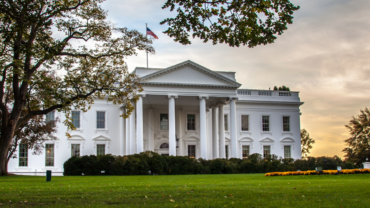- Global directory Global directory


IRS Letter Explains How One-Year Rule Affects Exclusion of Travel Reimbursements
EBIA
May 30, 2019 · 5 minute read
IRS Information Letter 2019-0003 (Dec. 21, 2018)
Available at https://www.irs.gov/pub/irs-wd/19-0003.pdf
The IRS has released an information letter explaining the statutory one-year rule that determines when a work assignment ceases to be temporary for purposes of travel deductions and the income exclusion for travel expense reimbursements. Generally, travel reimbursements are excludable if they would be deductible as ordinary and necessary business expenses under Code § 162(a). Travel expenses are deductible under that Code provision only if the taxpayer is traveling “away from home” in the pursuit of a trade or business. A taxpayer is not considered away from home, however, if the assignment exceeds one year. The information letter responds to a request for a waiver or other action allowing certain employees and contractors to treat per diem reimbursements as nontaxable travel reimbursements. The letter suggests that the reimbursements at issue were treated as taxable income because they did not meet the one-year rule.
The letter explains that a taxpayer’s tax home is generally the taxpayer’s regular or principal place of business. If an employee is assigned to a different location, and the assignment is realistically expected to last—and does last—for one year or less, the assignment is considered temporary. If the assignment is expected to last longer than a year, it is not temporary regardless of its actual length. And if the assignment is expected to be shorter, but that expectation changes, the assignment ceases to be temporary when the expectation changes. When the assignment ceases to be temporary, the new location becomes the taxpayer’s tax home, and travel expenses incurred at that location are no longer deductible. Because the one-year rule is statutory, the IRS has no authority to waive it.
EBIA Comment: The one-year rule took effect in 1993, but employees continue to be surprised and confused by it (e.g., see our Checkpoint article ). There may also be confusion as to how travel expense reimbursements can still be excludable despite most employees’ inability to claim a deduction for unreimbursed travel expenses. Employee travel expense deductions are miscellaneous itemized deductions, and the Tax Cuts and Jobs Act (TCJA) suspended miscellaneous itemized deductions for most employees for tax years after 2017 and before 2026. (The suspension does not affect Armed Forces reservists, qualified performing artists, fee-basis state or local government officials, and employees with disabilities who have impairment-related work expenses. It also has no effect on contractors, whose travel expense deductions are not considered miscellaneous itemized deductions.) But that suspension does not prevent employers from providing excludable business travel expense reimbursements (see our Checkpoint article ). Employers that do not intend to gross up taxable reimbursements should consider educating their employees about the one-year rule (and the current lack of a deduction to partially offset loss of the exclusion) at the start of any assignment that could last more than a year. For more information, see EBIA’s Fringe Benefits manual at Sections II.E (“Employee Business Expense Reimbursements”) and XXI (“Travel Expense Reimbursements”).
Contributing Editors: EBIA Staff.

Navigate the current landscape of AI
Our latest Future of Professionals Report examines how AI technology is transforming professional work, highlighting key findings and recommendations.

Stay ahead of new tax laws at home and internationally
Delve into the complexities of the evolving tax landscape and political shifts impacting your firm. Understanding the implications of these shifts is crucial for every tax professional as we navigate through these transformative times.

Build a career without boundaries
Learn more about how Thomson Reuters informs the way forward in The Power of Purpose
Related posts


When Do COVID-19-Related Extended HIPAA Special Enrollment Periods End?

ACA Preventive Health Services Mandate to Remain in Effect During Braidwood Appeal

CMS Issues Guidance on Elimination of MHPAEA Opt-Out Elections by Self-Insured Non-Federal Governmental Health Plans
More answers.

Year-end tax planning strategies: How to set your accounting firm up for success

How advisory tools are shaping the future of tax and accounting

Understanding President Biden’s Executive Order on data protection

IMAGES
VIDEO